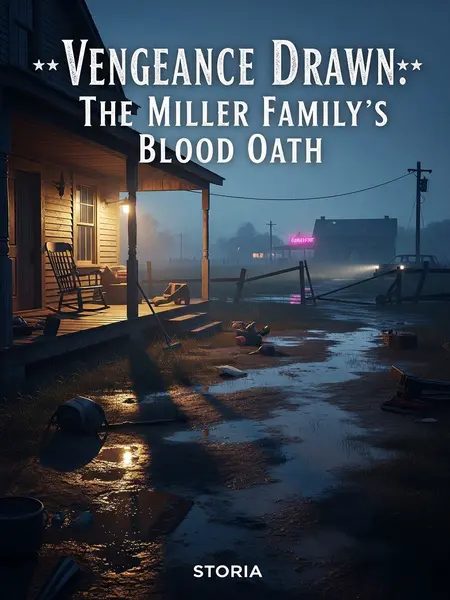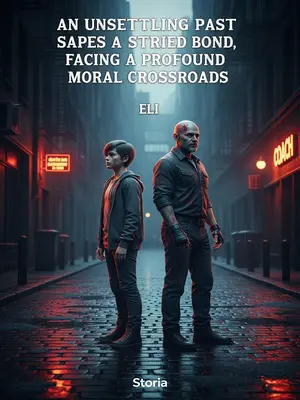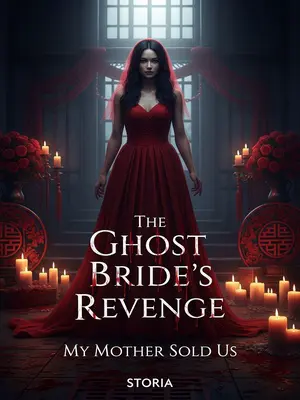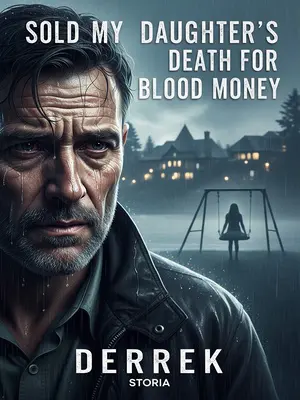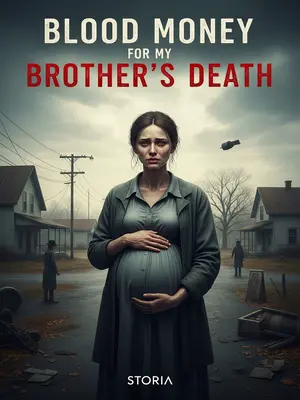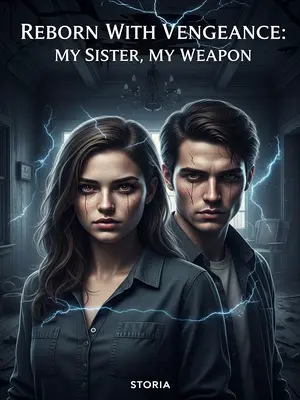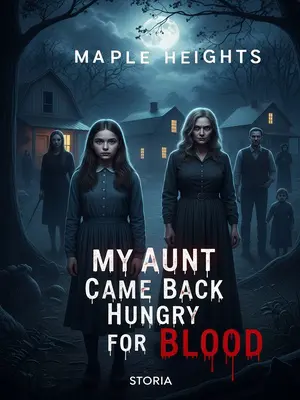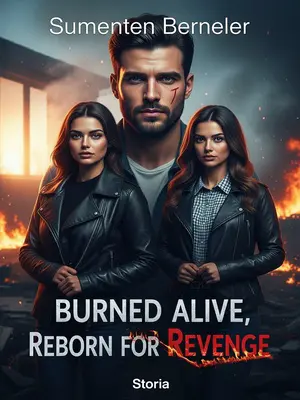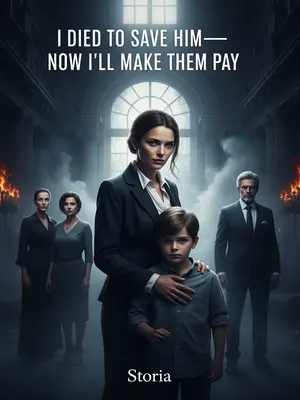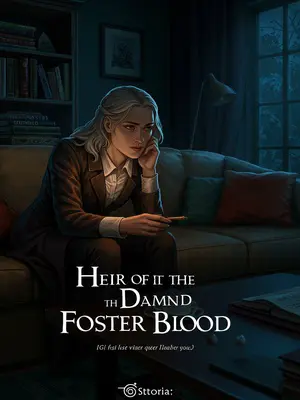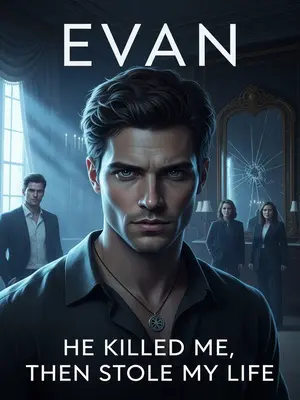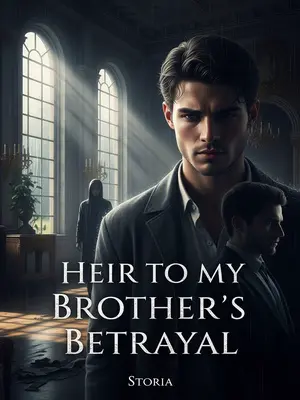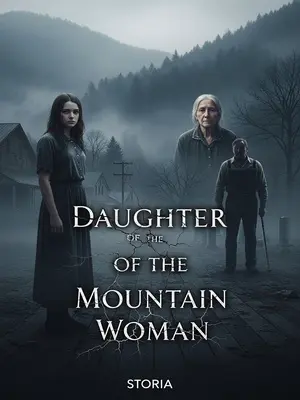Chapter 1: The Lot of Life and Death
Boots thudded on hardwood as the Miller clan hustled out of bedrooms—sweatpants, flannel shirts, and half-awake scowls. They crowded into the paneled den, beneath Colts pennants, the battered family Bible on the mantle, and the lingering smell of wood smoke and old leather, bracing for trouble the way only a Midwestern family with deep roots and deeper grudges can.
Big Jim Miller, the family patriarch, stood by the fireplace, his hand wrapped around a glass of bourbon. His voice cut through the room—low and stern. "Twenty years ago, two punks from the vo-tech stabbed a returning professor to death. Nearly threw this whole town into chaos."
His gaze swept the crowd, firelight dancing over the lines in his face. The story was half legend, half wound, and everyone there had grown up with it. The bourbon in his grip shimmered in the glow, like the old anger still burned in him.
"Now, twenty years later, we pulled every string and spent a fortune to get Professor Carter back here—he’s leading the overhaul of all three hundred and fifty of our factories."
He paused, holding his glass mid-air, his stare locking onto each of us in turn. A heavy silence settled. Someone shifted in their seat, a cousin nervously glanced at her phone. Three hundred and fifty plants—sweat and second chances—sprawled across the Midwest, keeping whole neighborhoods alive.
"But just last night, he was assaulted and robbed by a punk from vo-tech."
The hush grew thick enough to choke on. Even the kids who’d normally roll their eyes at a family meeting just stared, the weight of it sinking in.
"That kid’s underage and he’ll be out soon. He even threatened to get back at Professor Carter. Does he think the Millers don’t count anymore?"
Big Jim’s hand tightened on his glass. His voice rumbled with pride and old hurts. You could see the knuckles go pale, like he wanted to choke fate itself to keep us safe.
He lifted his glass high, voice ringing out: "Today, we draw the lot of life and death. Whoever draws it, their family’s cared for by all of us, their name honored, and we’ll remember them."
He spoke like a judge, but there was something fatherly in it too—a promise that if things went bad, you wouldn’t be forgotten. The bourbon trembled in his grip as he raised it—a Miller toast, but heavier, solemn.
"Protect the Miller family for generations!"
We raised our shot glasses—Jim Beam for most, a few old-timers with coffee. The glasses clinked in a wave, the smell of whiskey sharp in the air. For a moment, the Miller name felt bulletproof—bigger than any one of us.
Every Miller in the room shouted, voices rattling the old windowpanes: "Do it!"
The shout rolled through us like a Colts kickoff, a jolt of reckless loyalty. Goosebumps prickled my arms. For a second, pride and protection were all that mattered.
The bourbon burned on the way down—hot, sharp, and final. I felt it settle in my chest, swirling with adrenaline and a sense that there was no turning back. The silence after was thick, like the calm before a tornado.
At the bottom of my glass, in black marker, was written: "life and death."
Fate, spelled out on the inside of a shot glass. A Miller tradition older than the first cornfield, as solemn as a graveside prayer. My hand clenched around the glass, the meaning hitting like a hammer.
I smashed the glass on the hearth. Every eye snapped to me.
The crash echoed in the den. Stares landed heavy—fear, pride, regret, respect—all tangled up. Somewhere in the hall, a baby started crying. I realized the story changed here, at the crack of dawn.
I wiped bourbon from my lips and turned away.
The sting on my mouth was nothing compared to the burn inside. I walked past cousins and uncles who suddenly seemed smaller, their eyes wary. My boots thudded over the old rug—a sound like a door closing.
"From today on, the family will keep my name in the family Bible."
That’s what it meant—to take the lot. Your name written in the old Bible, right next to the uncles lost to war and the grandmothers who raised half the county. I remembered being a kid, tracing those names with my finger, trying to imagine the stories. Now, it would be my name whispered at Thanksgiving, mourned at Christmas, spoken with pride and a little bit of fear.
I never believed all lives were equal. Some people matter like the Rockies, others drift off like dust.
It sounds harsh, but it’s what you learn on the cold side of the American dream—some people are rocks, others just blow away. My father used to say the world gets built by those who stand when storms hit.
Professor Carter is one of the rocks—weighty as a mountain.
If he’s the mountain, the Millers are the land he watches over. The den seemed smaller just thinking about what losing him would mean—not just for us, but for every family that depends on a Miller paycheck.
He gave up a million-dollar salary to come back and rebuild the country’s industry. In my heart, he’s truly an irreplaceable treasure of the nation.
You had to respect a man like that—walking away from Silicon Valley money to drag a dying industry back to life. Folks around here called him a hero, but he’d just laugh and brush it off, like he was embarrassed by the attention.
I still remember how kind Professor Carter was. He never acted superior. He shyly asked me to help him set up Venmo, marveling at how advanced things had become—no need for cash, just tap your phone to pay.
It was a little thing, but it stuck with me. We were in the breakroom, microwaving coffee after midnight, when he handed me his phone with a sheepish grin. “Feels like I just stepped out of a time machine,” he chuckled, and I showed him how to link his account. He made you want to work harder, just to make him proud.
He clapped my shoulder, saying he was glad to be back in time, and had already spotted a dozen problems in our factory.
There was a light in his eyes, the kind you see in a teacher who still thinks he can change the world. He’d jot ideas between bites of vending machine Snickers, never griping about the hours or the busted equipment. He believed in us. We believed in him.
But his injury is on me.
That thought gnawed at me, heavier than any whiskey. A chain of choices—mine and his, all tangled up in guilt I couldn’t shake.
It’s all my fault. I was out delivering gear to the factory, said I’d help him with Venmo after the holiday.
I played it over and over—if I’d just stayed, if I’d helped him sooner. In the Midwest, you take care of your own. I’d let him down when it mattered.
If not for me, Professor Carter wouldn’t have had to pay with cash, and wouldn’t have been targeted by that punk.
Just thinking about it made my hands clench. Cash is a risk—everyone knows that. If I’d been there, he’d have been safe. None of this would’ve happened.
And that punk? Even the word tastes rotten.
It stuck in my throat. I wanted to spit it out, but the anger just sat there, festering.
Right now, I’m sitting in the dingy internet café above Joe’s convenience store.
Buzzing fluorescents, the air thick with burnt coffee, stale Fritos, and spilled Mountain Dew. Rows of old PCs flickered blue on hunched shoulders. There’s a dusty arcade cabinet in the corner, a faded "No Loitering" sign taped to the window, and the sticky tang of energy drink everywhere. I sat at a corner terminal, back to the wall, watching and waiting.
This is where Professor Carter was robbed.
A sad irony. The kind of place you come to kill a few hours, or—if you’re Carter—to grab a snack, never knowing it’s where your life goes sideways. Every town has a spot like this, always a little too close to trouble.
Since coming back, he worked late, hustling to solve factory problems. When he got hungry, the plant manager would wake up the kitchen staff to make him a midnight snack.
They’d grumble, but nobody minded for real. Carter was old-school polite—please, thank you, sometimes even offering to help wash dishes. Folks would swap stories about him, the way you do when someone leaves a good tip and a better impression.
But Professor Carter hated to bother anyone. So when midnight hunger hit, he’d come here, buy ramen, borrow hot water, and sit on the curb to eat before heading back to work.
I can picture it—button-down shirt, khakis, steaming noodles in his lap, maybe a spreadsheet open on his phone, always thinking two steps ahead. Never asking for much. That’s why what happened stings even more.
